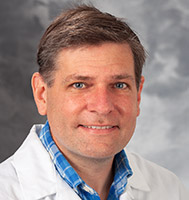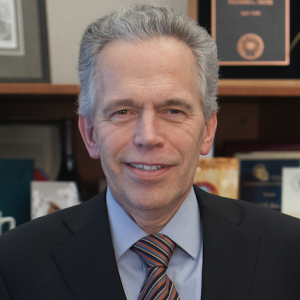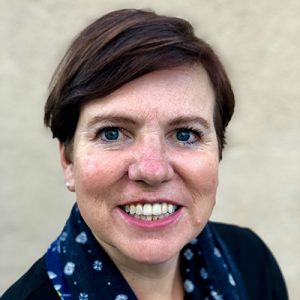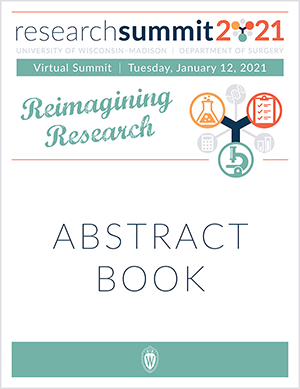Invited Speaker
This is an accordion element with a series of buttons that open and close related content panels.
Dr. Ankit Bharat
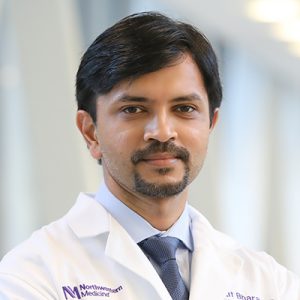
Dr. Ankit Bharat is the Harold L. and Margaret N. Method Professor of Surgery, Chief of Thoracic Surgery, and the Director of Lung Transplantation at Northwestern University in Chicago. He received medical training at Christian Medical College in India following which he joined Washington University in St Louis. There, he completed general surgery residency and cardiothoracic surgery fellowship as well as a post-doctoral research fellowship. At Northwestern, he treats patients with advanced thoracic diseases and provides therapies such as lung transplantation and extracorporeal membrane oxygenation to those with end-stage lung failure. In addition, he provides minimally invasive treatment to patients with thoracic malignancies including robotic and video-assisted thoracoscopic surgery. His NIH funded basic science laboratory investigates immunopathogenesis of lung disease with a focus on transplant immunobiology. Using research tools such as single cell transcriptomics, top-down proteomics, intravital imaging, and multichannel flow-cytometry, in combination with bioinformatics and computational biology, his research group is interested in identifying clinically actionable mechanisms underlying lung injury and utilizing models relevant to human disease. His laboratory is also interested in intravital imaging of immune responses after transplantation to determine the mechanisms of neutrophil recruitment into the lungs. He pursues problem-based surgical research by taking important clinical problems to the basic laboratory and their clinical lung transplant program allows his research team to validate their laboratory findings in humans.
Featured Panelists
This is an accordion element with a series of buttons that open and close related content panels.
David Andes, MD
Dr. David Andes is a faculty member and chief of the Division of Infectious Disease within the Department of Medicine, and also has an appointment in the Department of Medical Microbiology and Immunology. He holds the William A. Craig Endowed Professorship, and directs the Wisconsin Antimicrobial Drug Discovery and Development NIH Center of Excellence. Dr. Andes is frequently acknowledged for his multidisciplinary research contributions in the areas of infectious disease and drug resistance. His study tactics span from the bench to the clinic, including identifying new resistance mechanisms, defining new antimicrobial drug targets, delineating the optimal dosing strategies for treatment of drug resistant infections, and clinical trial study of epidemiology of drug resistance epidemiology. Dr. Andes’ research efforts have been continuously funded by the NIH since 2001.
William Hartman, MD, PhD
Dr. William Hartman is an anesthesiologist at UW Health and an assistant professor in the Department of Anesthesiology. He is the Medical Director for the UW Health Preanesthesia Assessment Clinic. Dr. Hartman’s current research focuses on quick implementation of therapy trial protocols to expeditiously bring novel treatments from the laboratory to the patient. Dr. Hartman is the principal investigator on UW’s clinical trial of AstraZeneca’s investigational COVID-19 vaccine, as well as UW’s study on using convalescent plasma to fight COVID-19.
Richard Moss, PhD
Dr. Moss joined the UW in 1979 as Assistant Professor of Physiology and was promoted to Associate Professor in 1983 and to Professor in 1987. He served as department chair from 1988 to 2009. During this time, the Department grew from 10 to 23 faculty and became one of the leading research departments in the nation. Dr. Moss founded the UW Cardiovascular Research Center and the M.S. in Biotechnology degree program. He was an AHA Established Investigator, held an NHLBI Merit Award, and led two NIH program project groups. In 2007, Dr. Moss received an honorary Doctor of Medicine degree from Uppsala University, the first medical school in Sweden. In 2009, he was appointed SMPH Senior Associate Dean for Basic Research, Biotechnology, and Graduate Studies.
Dr. Moss’s research focuses on the roles of myofibrillar proteins as modulators of myocardial function in health and in diseases such as heart failure and both acquired and heritable cardiomyopathies. He has authored more than 180 papers and has supervised over 20 graduate students and post-doctoral fellows who now hold positions in academic medical centers and research institutions around the world.
Betsy Nugent, MSPH, CCRP
For the past 30 years, Ms. Nugent has worked in clinical research in everything from drug discovery to epidemiology to all phases of clinical trials. For the past 15 years, she has focused on developing innovative methods to improve the efficiency and adaptability of clinical research operations. She consulted internationally on projects related to the worldwide opioid crisis for Health Canada, FDA and the World Health Organization. Most recently she worked at Kaiser Permanente to build a standards-based program for the conduct of clinical trials. She has testified before the legislature on issues related to clinical trials accessibility and patient advocacy. Currently Ms. Nugent is the Chief Clinical Research Officer at the University of Wisconsin School of Medicine and Public Health and UW Health where she is engaged in culture change, clinical integration and building a standards-based clinical trials program. Ms. Nugent is a Certified Clinical Research Professional through the Society of Clinical Research Associates. She holds a Bachelor’s Degree in Zoology from Colorado State University and a Master’s of Science in Public Health with a focus on Epidemiology and Biostatistics from University of Colorado.
Susan Thibeault, PhD, CCC-SLP
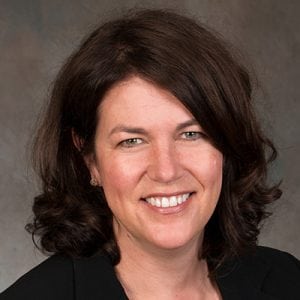
Susan Thibeault, PhD, CCC–SLP is the Medical Director of the Speech & Hearing Services at UW Health, the Diane M. Bless Endowed Professor in the Department of Surgery, Division of Otolaryngology-Head & Neck Surgery, at the University of Wisconsin-Madison.. Dr. Thibeault is also the Vice Chair of Research in the Department of Surgery. She received her PhD from the University of Wisconsin-Madison. Her NIDCD funded research efforts are primarily in the areas of vocal fold mucosa biology encompassing regenerative medicine, immunology and development.
Featured UW Department of Surgery Speakers
This is an accordion element with a series of buttons that open and close related content panels.
Matthew Brown, PhD
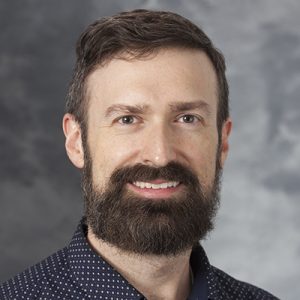
Matthew E. Brown, PhD, is an Assistant Professor in the Department of Surgery/Division of Transplantation. Dr. Brown completed his graduate training in the lab of William J. Burlingham, and a postdoctoral fellowship with James Thomson at the Morgridge Institute for Research. He is Principal Investigator of the Brown Lab and Director of the UW Humanized Mouse Core. The Brown Lab focuses on exploring the nexus of pluripotent stem cell biology and immunology. Lab members are currently investigating the mechanisms underpinning the immune response to autologous and allogeneic pluripotent stem cell (PSC)-derived cell therapies. Using transplantation immunology and genomics-based strategies, in conjunction with humanized mouse models, the goals are to 1) improve traditional organ transplantation outcomes, 2) gain new insights into PSC biology and immunology, and 3) enable curative regenerative medicine therapies.
Cynthia Kelm-Nelson, PhD
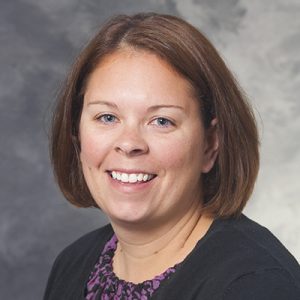
Dr. Cynthia Kelm-Nelson is an Associate Scientist in the Department of Surgery-Division of Otolaryngology. She has a M.S. in biotechnology and a Ph.D. in behavioral neuroendocrinology from the University of Wisconsin-Madison. Her long-term research goal is to understand the mechanisms that modulate vocal behavior in both health and disease. Her NIH funded work utilizes a true systems biology approach, encompassing behavioral, genomic, and proteomic analyses to model brain-vocal behavior relationships.
Over the past 8 years, Dr. Kelm-Nelson has had a central role in establishing the basis of the genetic Pink1-/- rat model of Parkinson disease. Her research program also includes mice, zebra finch, and European starlings to address questions that are impossible to answer in human subjects. She has 30 publications and presented over 60 posters and presentations on this line of work. Her most current NIH R01-, R21-, and UW ICTR- funded research is focused on defining the following gaps in knowledge: (1) the neuroanatomical tracing of the biochemistry of vocalization pathways, (2) the alterations in gene expression within the brain, vocal fold muscle, and blood that result in characteristic gene expression signatures that may constitute early Parkinson disease biomarkers, and (3) the identification and repurposing of FDA approved drugs that have therapeutic effects for vocal communication deficits. The results of this research will ultimately lead to an increased understanding of the onset of behavioral phenotypes, sex differences, neuropathology, and substrates of vocal communication deficits in Parkinson disease, as well as new targeted drug treatment options.
Jason Smith, MD
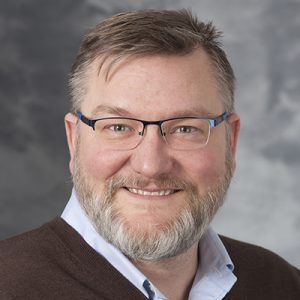
Dr. Jason W. Smith was an Associate Professor in the Department of Surgery, Division of Cardiothoracic Surgery. He began his new position as Surgical Director of Heart Transplantation and Mechanical Support at UW last April. Dr. Smith comes to us from the University of Washington, where he was Associate Surgical Director of Heart Transplantation and Mechanical Circulatory Support, and Program Director of the Thoracic Transplant and Mechanical Circulatory Support Fellowship.
Dr. Smith completed his medical degree, general and cardiothoracic surgery residencies at Loyola University Chicago followed by a fellowship in thoracic transplantation and mechanical circulatory support at Stanford University.
Dr. Smith’s clinical interests include advanced heart failure, emerging therapies for valvular heart disease and coronary revascularization. His research focuses on heart transplant organ preservation, novel approaches to expanding the supply of donor organs and artificial heart pumps. He holds service positions with the International Society for Heart and Lung Transplantation, the Society of Thoracic Surgeons, and the American College of Cardiology.


